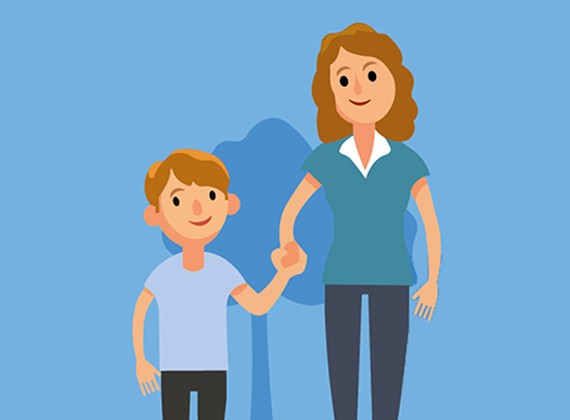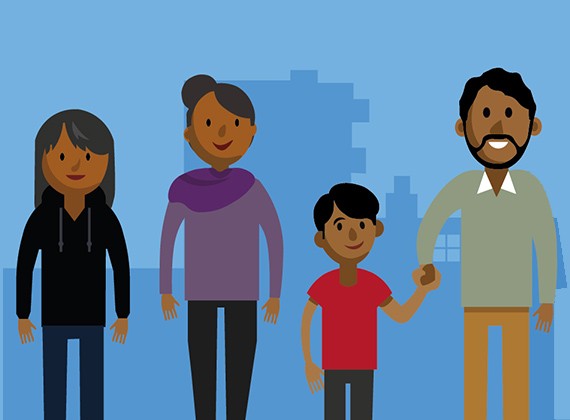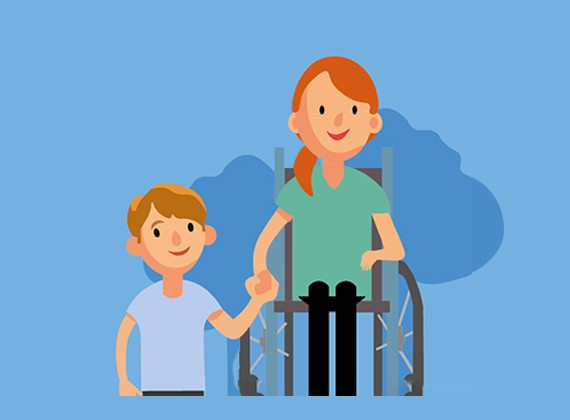

Our inpatient services
When a child or young person is admitted to a Tier 4 inpatient unit it can be a really overwhelming time for a family
Family Ambassadors are not part of the clinical team, so they can't make decisions about the care and treatment of your child or young person. However, they can help you to understand the system and process involved in hospital admission.
The following information explains a bit more about our Tier 4 inpatient services. Please do speak with your Family Ambassador if you would like any further support here, or if you have any queries about the information that has been provided to you by the professionals involved in your child or young person's care.
The South-East region team of Family Ambassadors support the families of children and young people who are admitted to one of the CAMHS Tier 4 Inpatient Units listed below.
- Kent and Medway Adolescent Hospital
- Chalkhill Hospital
- Brighton and Hove Clinic
- Bere Clinic
- Serenity Path
- Austen House
- Blake Day Service
- Spring Tide Day Service
These Inpatient Units are in the geographical areas of Hampshire, Sussex and Kent, but our support is open to all families of children and young people who are admitted, regardless of where the family live.
The following table gives an overview of the differences between each CAMHS level.
|
Tier 1 |
Universal services such as early years services, and all primary care agencies, including general medical practice, school nursing, health visiting and schools. Tier one services aim to promote mental well-being, recognise when a child or young person may have developmental or mental health problems that this level of service cannot meet, and know what to do when this is the case. Universal services may be provided by a range of agencies. |
|
Tier 2 |
More targeted services such as youth offending teams, primary mental health workers, and school and youth counselling (including social care and education). Tier two services include mental health professionals working on their own rather than as part of a multi-disciplinary team (such as CAMHS professionals based in schools). Staff may work with the child or young person directly, or indirectly by supporting professionals working in universal services. In addition, Tier Two services include school counsellors and voluntary sector youth counselling services. Targeted services include those provided to groups that increased risk of developing mental health problems, such as looking after children's teams. Paediatric services may also be defined as Tier two CAMHS because they often take the lead for children with developmental disorders and attention deficit hyperactivity disorder (ADHD). |
|
Tier 3 |
Specialist community CAMHS. These are multidisciplinary teams of child and adolescent mental health professionals providing a range of interventions, including teams with specific remits such as:
|
|
Tier 4 |
Highly specialist services, such as day and inpatient services, very specialised outpatient services, and increasingly, services such as crisis home treatment services which provide an alternative to admission. These are generally services for a small number of children and young people who are deemed to be at greatest risk of rapidly declining mental health, or from serious self-harm, and who need a period of intensive input. Tier four services are often provided on a regional or supra-regional basis. There are also a small number of very highly specialised services, including medium secure adolescent units, services for those with gender dysphoria and highly specialist obsessive-compulsive disorder services. These services are usually commissioned on a National rather than a local basis. |
The following guides have been written in collaboration with families with lived experience of supporting a child or young person through Tier 4 services.
- This guide has been designed to help explain the way in which CAMHS inpatient services and support are provided.
CAMHS Family Survival Guide (bringingustogether.org.uk)
- This guide has been written to help families understand and cope with the CTR (Care and Treatment Review) process. The guide not only focusses on the period before, during and after a CTR, but also covers related topics to help families understand the complicated process.
CTR Survival Guide Aug 2017 (bringingustogether.org.uk)
- This resource explains how to cope when supporting someone else, giving practical suggestions for what families can do and where they can go for support.
supporting-someone-else-2017.pdf (mind.org.uk)
- The collection of #GettingThrough guides were created by and for families in collaboration with NHS England. They offer useful information for families when their child or young person (CYP) has been admitted to a CAMHS Tier 4 inpatient unit. The guides can be accessed here #GettingThrough guides.
During a Tier 4 Inpatient admission, a wide range of professionals may be involved in the care and treatment of your child or young person.
The CAMHS team is made up of different mental health professionals with specialised skills and expertise. You/your child might see one member of the team on their own or several of them. There may also be other professionals not listed here. Ask your Family Ambassador or a member of the ward staff to explain any other roles.
Psychologist
A psychologist can assess your child or young person's mental health and help them explore their thoughts, feelings and behaviours. They can give different types of therapy, like talking therapies. There are different types of psychologists your child or young person might meet, like clinical psychologists or occupational psychologists.
Psychotherapist
A Psychotherapist can offer talking therapies, like Cognitive Behaviour Therapy (CBT). Like psychologists, they can help people to cope better with emotions, and understand the reasons for feelings, thoughts and actions.
Family therapist
A family therapist works with individuals and families. They will listen to everyone’s perspective and help everyone make or adapt to changes. They can help everyone talk through any difficult things as a group or individually.
Creative therapist
A creative therapist uses music, art and sometimes dance or drama to help people express their feelings. They might also encourage creative activities to improve wellbeing and confidence.
(Consultant) Psychiatrist
A Consultant psychiatrist is a medical doctor who specialises in child and adolescent mental health and has overall medical responsibility. They are also responsible for prescribing medication.
Speech and language therapist
A speech and language therapist helps with communication and talking skills, or with eating, drinking and swallowing.
Nurse (RMN or Registered Medical Nurse) Mental Health Nurse
A nurse at CAMHS is trained in mental and physical health. They can monitor mental and physical health and carry out physical health checks. They can administer medication but do not prescribe the medication. A named nurse will work closely with their patients and family members/carers throughout an admission.
Social worker
Social workers have specialist training in child development, family relationships, safeguarding children and child welfare issues. They are employed by the health service and local authority to work in health.
Care coordinator
A care coordinator will be responsible for organising your child or young person's treatment and support plan and will be the main point of contact for patients and family members.
Occupational therapist (OT)
An occupational therapist uses play and other activities to help a child or young person understand and express their thoughts and feelings. They may also organise group or individual activities on the ward as well as off the ward for any group leave outings. Alongside this, OT's can assess the sensory needs of your child and provide them with the support they may need.
Support worker
Support workers play a key role in directly supporting young people and their families and carers using a person-centred approach to offer practical assistance and emotional support.
Please read our jargon buster which details some of the most commonly used acronyms you might see and hear during your child or young person's inpatient stay. Please ask your Family Ambassador if you need any additional support understanding the language or abbreviations being used during your child or young person's stay.


